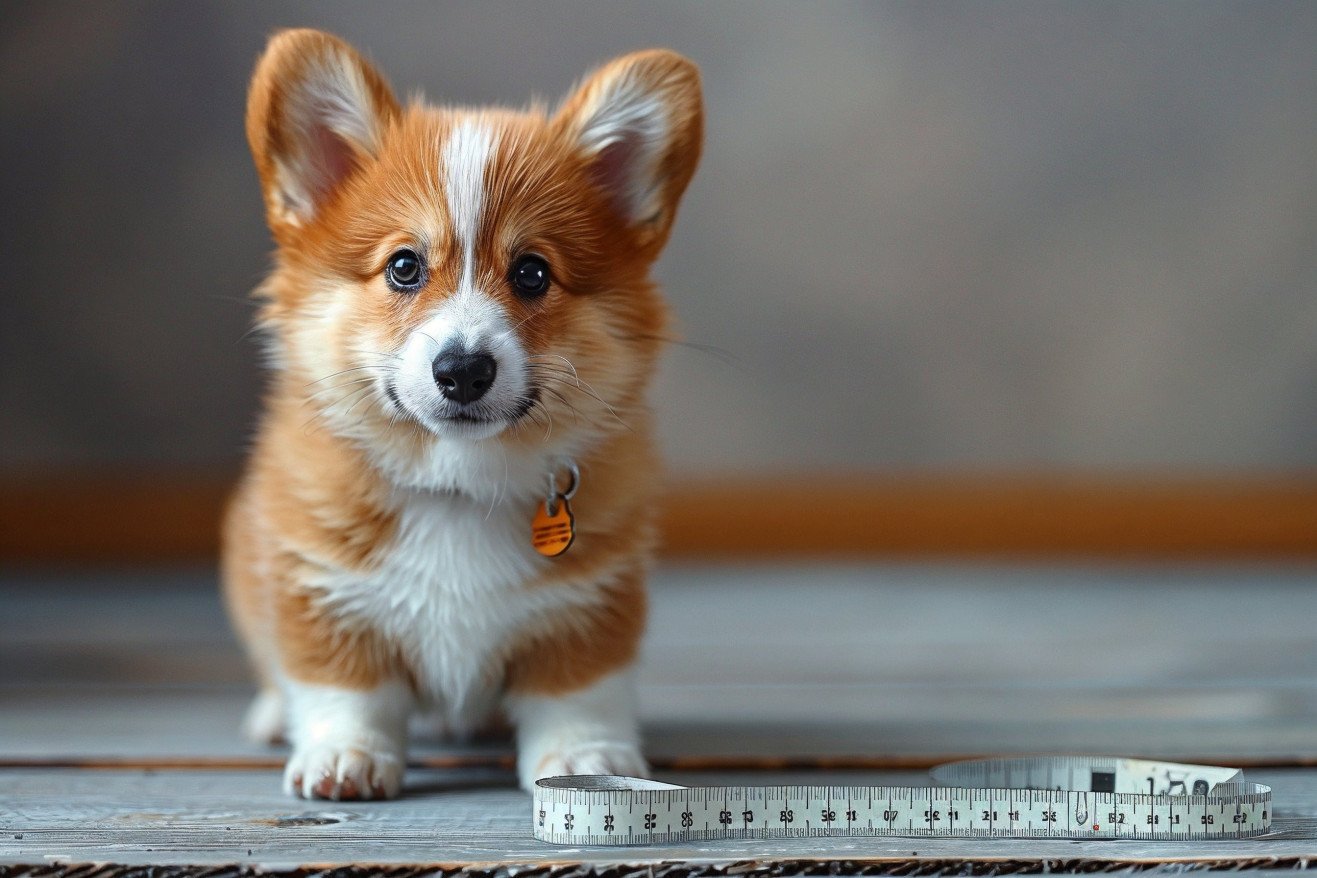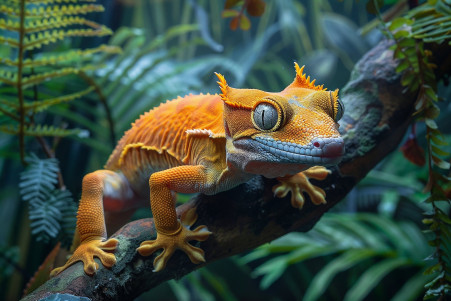How Big Do Corgis Get? A Look at the Average Size of Full-Grown Corgis
1 April 2024 • Updated 1 April 2024

Corgis are a popular dog breed known for their stocky builds and adorable faces, but how big do these lovable dogs actually get? While Corgis are considered a small breed, their long bodies make them seem larger. Males typically measure 10-12 inches in height and weigh 27-30 pounds, and females are slightly smaller at 10-12 inches in height and 25-28 pounds. Their long bodies help them stay low to the ground while herding cattle and other animals.
This article explores a range of scholarly research and expert opinions that cover everything from growth rates and genetics to breed standards for this distinctive herding breed. By reviewing information from kennel clubs, veterinary research, and breed experts, you'll come away with a comprehensive understanding of the average size of a Corgi as it grows from a puppy to an adult dog. You'll also learn about the impact of nutrition, living conditions, and other variables on the maximum size a Corgi can grow to.
How big do corgis get?
What Are the Breed Standards and Growth Rates for Corgis?
Corgis are a breed with a defined set of standards when it comes to size, as outlined by major kennel clubs. According to the American Kennel Club, Pembroke Welsh Corgis should be between 10 and 12 inches tall and weigh no more than 30 pounds, and Cardigan Welsh Corgis can be between 11 and 13 inches tall and weigh up to 38 pounds, according to Dogster.
These small herding dogs also have a specific growth rate. According to Dogster's growth chart, at 3 months old, Pembroke Corgis typically weigh between 9 and 14 pounds, at 6 months old they weigh between 17 and 23 pounds, at 9 months old they weigh between 20 and 28 pounds, and they reach their full adult weight of 22 to 30 pounds by the time they're 1 year old. Cardigans are a bit bigger at each of these stages. Most Corgis will reach their full height by the time they're 1 year old, but they may continue to fill out until they're 2 or 3 years old.
A number of things can affect how big a Corgi will get. Genetics are a factor, and the AKC explains that responsible breeders will breed dogs that are within the ideal size range. The sex of the dog also matters, as Dogster says that females are typically smaller than males. Nutrition in the first year of life is also important, and a vet-recommended diet that's high in protein can help ensure a dog grows at a healthy rate, according to information from veterinarians that Dogster references.
It's important to keep an eye on a Corgi puppy's growth, according to the experts at Hill's Pet Nutrition, and regular visits to the vet can help make sure that a puppy is gaining weight at a healthy rate and hitting the milestones they're expected to at each stage of development. With the right care, these popular herding dogs will grow into well-built adults that are a good fit for their breed standards.
Lifespan and Health Issues of Corgis
The average lifespan of a Corgi is 12-15 years, with Pembroke Welsh Corgis living 12-13 years and Cardigan Welsh Corgis living 12-15 years, according to Forbes Advisor. However, Corgis are susceptible to a number of health problems that can affect their quality and length of life if not addressed.
Health issues that are commonly found in Corgis include obesity, hip and elbow dysplasia, heart disease, degenerative myelopathy, and bleeding disorders such as Von Willebrand's disease, according to PetMD and The Native Pet. These problems can cause pain, mobility problems, and other health concerns if not treated.
However, a healthy diet, regular exercise, and regular veterinary care can help Corgis live longer, according to Forbes Advisor. It's especially important to make sure that Corgis maintain a healthy weight, because according to WebMD, they are prone to obesity, which can make joint problems worse. In addition, responsible breeding that includes genetic health testing is important to ensure the breed's long-term health.
How to Groom and Care for Corgis
Corgis have a unique double coat that needs regular grooming and care. As Willo the Corgi explains, these herding dogs shed throughout the year, but they tend to shed the most in the spring and fall. Brushing the coat a few times a week with a quality comb will help remove the dead undercoat and dirt and debris. If the undercoat is shedding, daily brushing with a de-shedding blade and slicker brush will help keep the coat from matting and remove any tangles.
Bathing a Corgi every 2-4 weeks, as suggested by Stumps and Rumps, will help get rid of dirt, odors, and loose fur. It's important to use a mild, hydrating shampoo and conditioner to avoid stripping the coat of its natural oils. The coat should be completely dry before brushing to avoid tangles. Rover.com recommends line brushing and a "modest trim" in the summer to help control the heavy undercoat.
In addition to grooming the coat, it's important to trim the nails, clean the ears, and brush the teeth regularly to ensure the Corgi stays healthy and happy, according to Dogster. With the right grooming products and methods, Corgi parents can ensure their dog's unique double coat looks its best all year long.
Corgi Temperament: What to Know About This Breed
Corgis are known for their big personalities in little bodies, according to Canna-Pet. They are generally happy, playful, and affectionate dogs that are also trusting and eager to please. Corgis are also very loyal and loving, and they will want to be with you and your family every step of the way.
Corgis are smart and easy to train, but they can also be stubborn and headstrong, says My Family Vets. Positive training methods are a must since Corgis don't respond well to harsh or negative training techniques. Corgis' herding instincts can also lead them to try to "herd" kids, so it's important to socialize them early.
According to Rover.com, Corgis are high-energy dogs that require lots of exercise and mental stimulation. Although they can be great family pets, they may not be the best choice for families with young kids due to their tendency to nip, says The Native Pet.
That said, with the right training, socialization, and attention, Corgis can be loyal and loving family pets, according to Country Living and Willo the Corgi. Their lovable temperament and adaptability mean they are a popular choice for many families.
Conclusion: What to Know About Full-Grown Corgis
Corgis are a popular breed known for their long bodies and short legs. By learning about the typical size and growth patterns of these herding dogs, you can make sure that you are ready to meet the needs of a Corgi as they grow. Males are generally 10-12 inches tall and weigh 27-30 pounds, while females are 10-12 inches tall and weigh 25-28 pounds.
Being a responsible pet owner and meeting a Corgi's needs is important for their health and well-being. With the right diet, exercise, and medical care, these active dogs can live an average of 12-15 years. Their continued popularity is a testament to their adaptability and wonderful nature as family pets.
If you are considering adding a Corgi to your family, make sure to research the breed thoroughly, talk to professionals, and assess whether you can meet their grooming, exercise, and other needs. With the right preparation, you can bring one of these wonderful herding dogs into your home.


